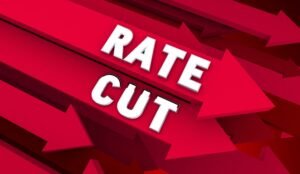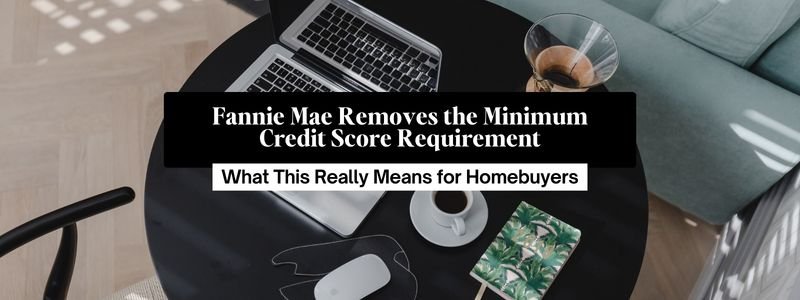
The $10K Trick Most Homebuyers Don’t Know (But Should)
You’ve found the home you love — listed at $400,000. You’re ready to make an offer and start wondering:
“Should I go in at $390,000 and try to save $10K upfront?”
Seems smart, right?
But what if there’s a better way to use that $10K — one that could save you even more over time, lower your monthly payment, and make your loan more affordable from day one?
Enter: Seller-paid buydowns — one of the most powerful (and overlooked) tools in today’s real estate market.
Let’s break down how this strategy works, and whether a temporary or permanent rate buydown is better for your situation.
What Is a Seller-Paid Buydown?
A seller-paid buydown is when the seller agrees to cover the cost of reducing your mortgage interest rate. Instead of negotiating the home price down, you ask the seller to contribute to your loan costs — often up to 3% of the purchase price — to buy down your rate.
There are two main types of buydowns:
-
Permanent Buydown: The interest rate is lowered for the life of the loan.
-
Temporary Buydown: The rate is reduced for the first 1–3 years, then returns to the full rate.
At Certified Home Loans, we break down both options so buyers — especially first-time home buyers — can decide what works best based on their financial goals.
Example: The Power of a $10K Seller Concession
Let’s say you’re buying a $400,000 home and putting 5% down. Your loan amount is $380,000.
Instead of negotiating the price down to $390,000, you offer full price — but request a $10,000 seller credit.
Here’s what you could do with it:
Option 1: Permanent Buydown
You use the $10,000 to permanently reduce your interest rate — buying ~2.5 discount points.
| Scenario | No Buydown | With Permanent Buydown |
|---|---|---|
| Rate | 7.00% | 6.375% |
| Monthly Payment | $2,661 | $2,497 |
| Monthly Savings | — | $164 |
| 5-Year Savings | — | $9,840 |
| 10-Year Savings | — | $19,680+ |
✅ Best for buyers planning to stay long-term
✅ Monthly payment stays low for the life of the loan
Option 2: Temporary Buydown (2-1 Buydown)
With a 2-1 buydown, the seller’s $10,000 lowers your interest rate by:
-
2% below your full rate in Year 1
-
1% below your full rate in Year 2
-
Full rate from Year 3 onward
So instead of starting at 7.00%, you pay:
-
5.00% in Year 1 ($2,039/month)
-
6.00% in Year 2 ($2,278/month)
-
7.00% from Year 3+ ($2,661/month)
This saves you $7,464 over the first two years.
✅ Best for short-term savings or expected income growth
✅ Great for buyers refinancing in 1–3 years
⚠️ Payment jumps in Year 3
Pros & Cons: Temporary vs. Permanent Buydown
| Feature | Temporary Buydown | Permanent Buydown |
|---|---|---|
| Monthly Payment | Lower early on | Lower long-term |
| Best For | Short-term savings, refinancing plans | Long-term ownership |
| Rate Stability | Increases over time | Fixed for the life of the loan |
| Total Interest Saved | Less | More |
| Seller Contribution | Often covers the full cost | May require more funds for significant savings |
| Loan Qualification | Must qualify at full rate | Lower qualifying payment from the start |
When a Temporary Buydown Makes Sense
Temporary buydowns are ideal when:
-
You expect your income to rise in the next 1–3 years
-
You’re planning to refinance when rates drop
-
You want to ease into your new mortgage
-
You need short-term payment relief but plan to pay more later
Pro Tip: Some first-time home buyers use temporary buydowns to ease into homeownership and build up savings during the early years.
When a Permanent Buydown Is Better
A permanent buydown is the stronger option if:
-
You plan to stay in the home for 5+ years
-
You want a predictable payment long-term
-
You’re concerned about rate volatility
-
You want to maximize interest savings over time
Want to dive deeper into how seller-paid buydowns work? We cover that in our full breakdown right here.
Why Would a Seller Agree?
It may seem like asking for concessions puts your offer at a disadvantage — but often, the opposite is true.
Many sellers care more about the purchase price than the net proceeds because the sales price influences future neighborhood comps.
A $400K sale with a $10K concession:
-
Preserves full value on paper
-
Keeps appraised value stronger for neighbors
-
Helps the seller move the home faster — especially in a cooling market
Compare that to a $390K offer with no concessions: less appealing on paper and to the seller’s agent.
Bottom line: Strategic concessions are often a win-win.
How to Know Which Strategy Is Right for You
The choice between a temporary and permanent buydown depends on:
-
How long do you plan to stay in the home?
-
Whether you expect to refinance.
-
How much seller credit you’re allowed based on your loan?
-
Your short- and long-term budget goals.
We can help you compare scenarios side by side.
At Certified Home Loans, we don’t believe in cookie-cutter advice. We take the time to understand your full financial picture — and show you how options like buydowns can fit into your plan.
Final Thoughts: Make Your Offer Smarter, Not Just Lower
Trying to “win” by offering $10K under asking might feel good at the moment…
But using that same $10K to buy down your rate — temporarily or permanently — could save you far more in the long run.
Smart home buyers look beyond just the sales price. They look at what their money can do, both today and years from now.
Let’s See What a Buydown Could Do for You
Whether you’re buying your first home or making a move-up purchase, our team is here to help you:
-
Run the numbers on temporary vs. permanent buydowns
-
Compare concessions vs. price reductions
-
Make the smartest offer possible based on your loan and goals
📞 Reach out to Certified Home Loans today to schedule a personalized loan strategy session.
Because the right move now could mean thousands in savings later.





